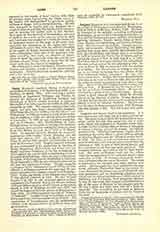

Langen, RUDOLPH VON, humanist and divine, b. at the village of Everswinkel, near Munster, Westphalia, 1438 or 1439; d. at Munster, December 25, 1519. His family belonged to the nobility; according to Hermann Hamelmann, he received his schooling at Deventer, in the school of Thomas a Kempis, together with Rudolf Agricola, Alexander Hegius, Anton Liber of Soest, Count Maurice von Spielenberg, and Ludwig Dringenberg. But this cannot be possible. Thomas was certainly not a teacher. Count Spielenberg and Dringenberg were much older; possibly Agricola and Liber were his schoolfellows, but where there is no saying. In 1456 he entered the University of Erfurt, and received the degree of B.A. in 1459 and M.A. in 1460. But before this he was made canon of the cathedral of Munster, and provost of the old cathedral in 1462. He went to Rome in 1466 in connection with the election of a bishop. But Hamelmann is wrong in what he has to say about his having been the scholar of the most renowned Italian humanists. He was only there a short time. Neither did Count Spiegel berg go with him, as he went to Rome in 1463, and several of the other scientists mentioned had been dead a long time. But it is true that Langen absorbed many new ideas in Italy. At Munster he was the center of literary life, as well as of humanistic efforts. He was surrounded by a group of men of similar tastes. He possessed a good classical library, which he liberally placed at the disposal of others. Young Hermann von dem Busche was one of his pupils, to whom he imparted a love of classical literature. Hamelmann says he went to Rome a second time, with Hermann von dem Busche (1486). But this is not very probable.
Langen’s own literary work is not important. It is true that he was well read, but he lacked poetical talent. He wrote a poem about the destruction of Jerusalem, which has not been preserved; also a prose work, which was published in Deventer about 1485. In 1486 the first printing office at Munster, belonging to Johann Limburg, printed his poems. In 1493 he published the “Rosarium beatissimae virginis gloriosissimaeque dei matris Mariae”; about 1494 an epitaph on Albertus Magnus; and the “Horae de sancta truce” in 1496. All these, as well as numerous other lesser poetical attempts, met with no better success than the collection of 1846, in spite of their ethical gravity, and his inspiration for all that was noble and good. But Langen’s influence upon others was far more important. His most meritorious work was the reform which he brought about in the cathedral school, which took place in 1500. It became a humanistic institution, patterned after the one at Deventer. The course of instruction was changed, and other masters were called. But the school was more indebted to the sub-rector, Johannes Murmellius, than to the rector, Timann Kemener; the former was one of the ablest German humanists, and the flourishing condition of the school and its widespread influence, which reached to Schleswig and Pomerania, drew numerous scholars. It was by this work that Langen raised the literary life of the town of Munster to the greatest activity. He was a pious and noble man, who led a truly religous life. The inscription on his tomb at Munster lauds him as the patron of scholars and the friend of the poor.
KLEMENS LOFFLER

